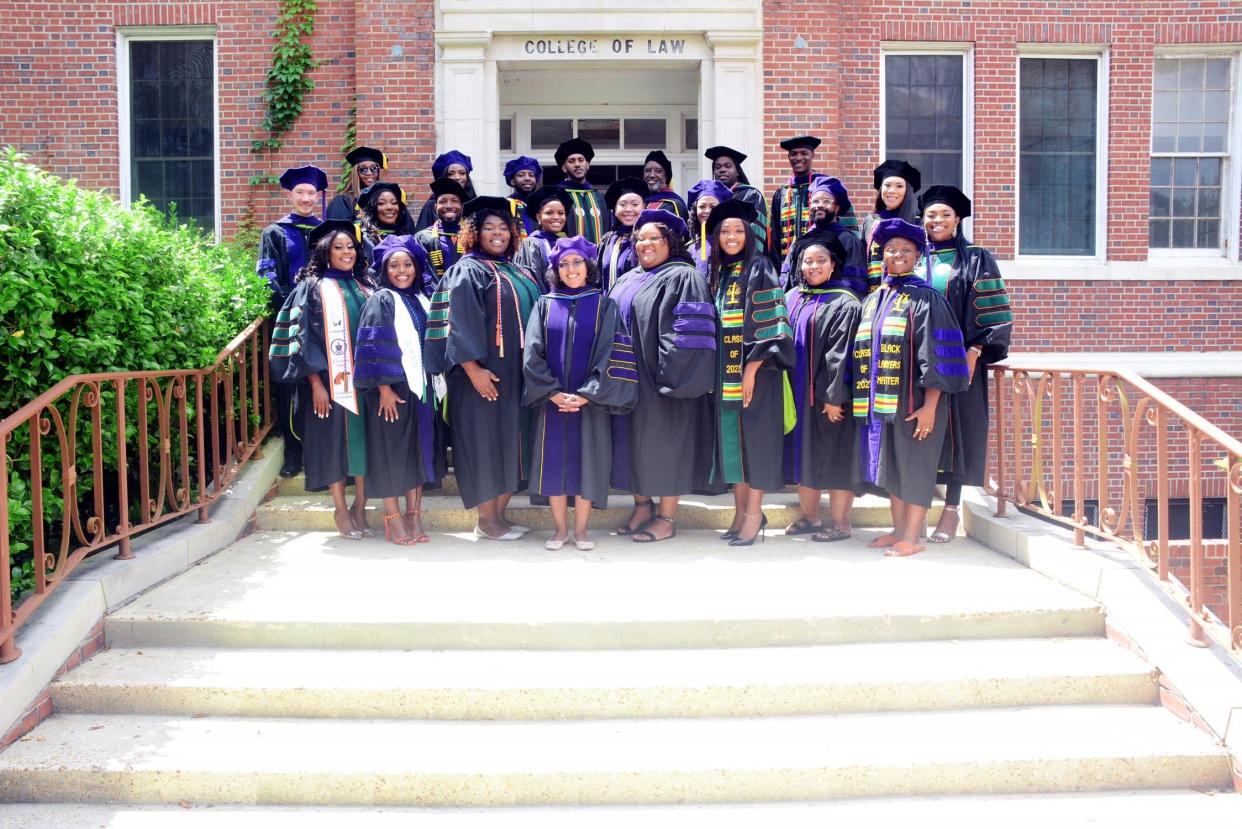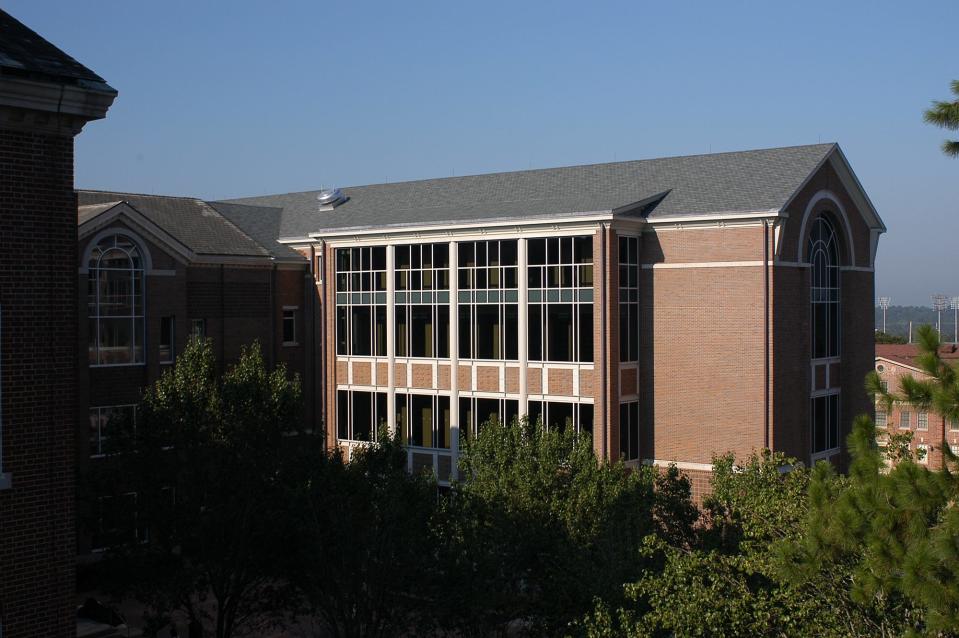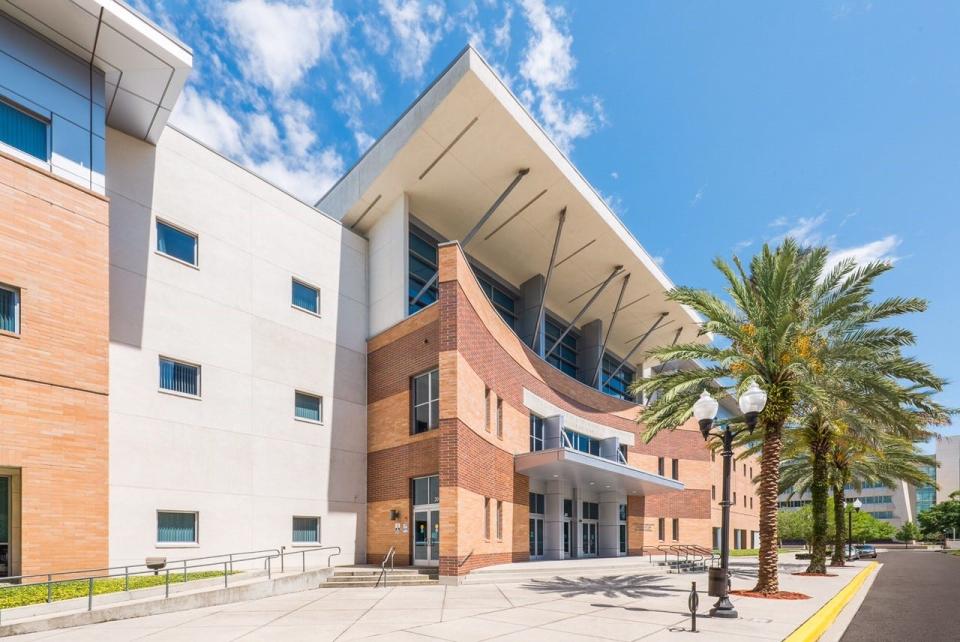Memorializing FAMU’s hidden law school history | Opinion

When visitors and students walk past Florida A&M University’s Coleman library after September 9, the history behind the words: “FAMU College of Law” will be known to all.
The words will stand next to a plaque with the names of the 57 students who graduated from Tallahassee’s first law school from its 1951 opening until the legislature ended its operations in 1968.
Those graduates included Jesse McCrary, Jr., Florida’s first Black Secretary of State and Florida Senate Minority Leader Arthenia Joyner.

The original FAMU College of Law was housed in the north end of the Coleman Library building on the Tallahassee campus.
The number of law school graduates is impressive when compared to the University of Florida had only graduated two Black law students 12 years after its 1958 desegregation. Neither UF nor Florida State University graduated 57 Black law students until the 1980’s.
FAMU’s efforts are even more impressive because Florida established the FAMU College of Law using a model that the U.S. Supreme Court had found to be inadequate in 1950 in the pre-Brown case of Sweatt v. Painter.
In Sweatt, the Court determined that Texas’ “law school for Negroes” with 1,650 law books and five law professors (compared to 65,000 volumes and 18 law professors at the University of Texas) was not substantially equal to UT and as such, Heman Sweatt was entitled to attend the University of Texas’ College of Law.
Despite the clear mandate of the U.S. Supreme Court, Florida opened FAMU’s College of Law, with 16,000 law books and four professors. Florida Justice Harold Leon “Tom” Sebring declared in his 1952 opinion: that the FAMU law school “will afford to [Virgil Hawkins] opportunities and facilities which are substantially equal to those to be found at the University of Florida.” Knowing that limited resources had been allocated, FAMU defied expectations.
According to Judge Constance Baker Motley, when she represented Virgil Hawkins in the 1958 UF desegregation case, Federal Judge Dozier DeVane warned her: “Don’t you understand that once I order desegregation, white law students will take all of the seats at FAMU and all the money we invested in FAMU will cease to help your people?”
DeVane’s prediction did not come true. While lawyers wanted to send their sons to a Florida law school, they were not willing to have their son’s offices bear a degree from the College for Negroes.

Following desegregation, the funds and books were transferred to FSU and FAMU was prohibited from admitting new students until 2002 when its operations resumed in Orlando. Fortunately, in 1999, FSU agreed with a proposal I made on behalf of Florida’s NAACP to preserve the books obtained from FAMU. Those books are now a special collection at FAMU’s College of Law library in Orlando.
We can only speculate on the history and reputation of FAMU’s law school if it had continued during the two decades between its defunding and its refunding. The new plaque will serve as a motivation to current and future faculty and students that regardless of obstacles, perseverance and determination can accomplish greatness.

Harley Herman, an attorney based in Plant City, Florida, is President of the Virgil Hawkins Historical Society. His 1988 petition to the Florida Supreme Court posthumously reinstated Virgil Hawkins’ Florida Bar membership.
If you go:
Florida A&M University will unveil a plaque honoring the 57 original College of Law graduates at 2 p.m. Friday, September 9. The unveiling will take place on the north end of the Coleman Library building on the Tallahassee campus, home of the original law school.
JOIN THE CONVERSATION
Send letters to the editor (up to 200 words) or Your Turn columns (about 500 words) to letters@tallahassee.com. Please include your address for verification purposes only, and if you send a Your Turn, also include a photo and 1-2 line bio of yourself. You can also submit anonymous Zing!s at Tallahassee.com/Zing. Submissions are published on a space-available basis. All submissions may be edited for content, clarity and length, and may also be published by any part of the USA TODAY NETWORK.
This article originally appeared on Tallahassee Democrat: Memorializing FAMU’s hidden law school history | Opinion

